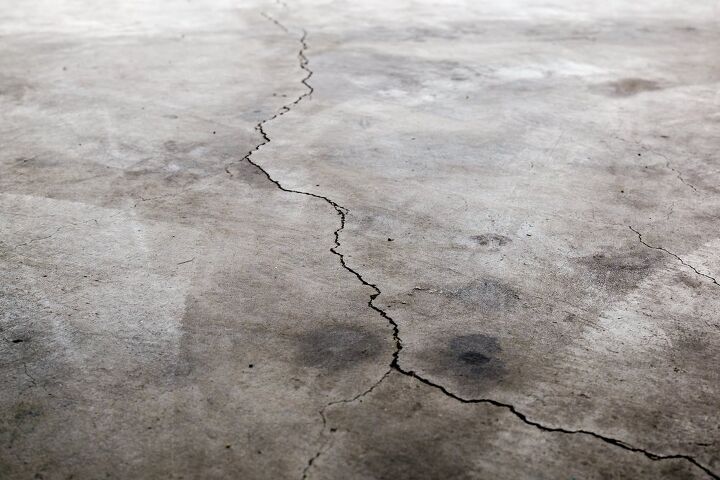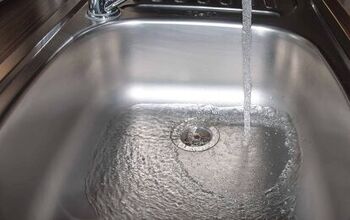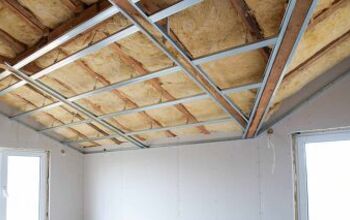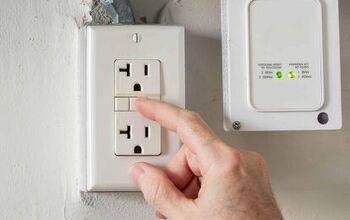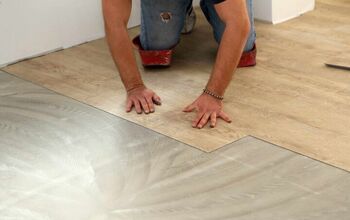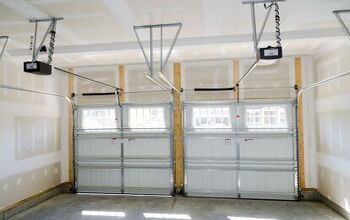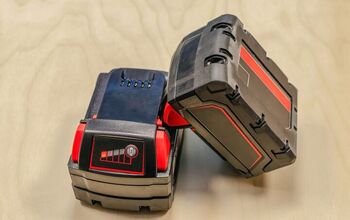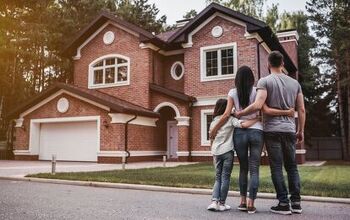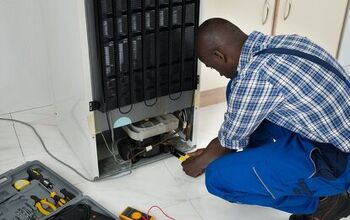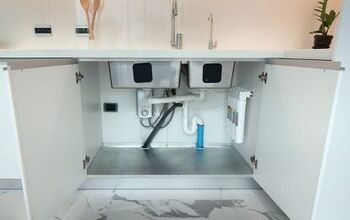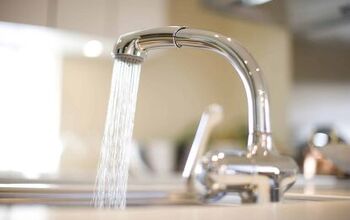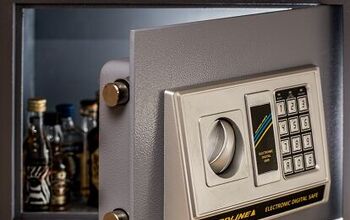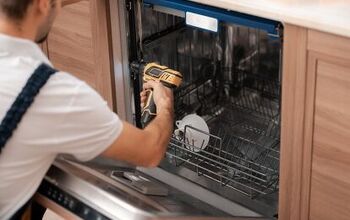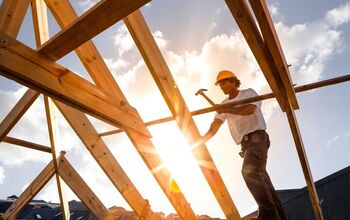Garage Floor Cracked And Is Sinking? (Here's What You Can Do)

There is a great sense of security when you park a new car in your garage and close the door behind you. For years, secure garages have been great selling points for homes. A garage’s added security and cleanliness are highly desirable. It may come as a great shock then when your secure garage floor begins to crack and sink.
A cracked and sinking garage floor can occur quite quickly, or slowly over time. Regardless of how it happens, it is a burden and red flag that should be addressed as soon as you notice it.
Poor installation is a common cause of garage floor cracking and sinking. Other reasons include poor water drainage, soil erosion, and excessive weight put on the floor. If you notice your garage floor cracking and sinking you should contact a professional for advice. Often, slabjacking is a possible solution. Address the issue as soon as possible as the problem will likely get worse and more expensive to repair.
Do You Need Concrete Foundation Repair Services?
Get free, zero-commitment quotes from pro contractors near you.

Why Is My Garage Floor Cracked And Sinking?
There are several reasons your garage floor is cracked and sinking. Many of the reasons for a cracked and sinking garage floor come from issues underneath the concrete. Other issues are environmental. What you park in your garage can even be the culprit. It is important to find the root cause so you can decide the best way to repair your garage floor.
Water Drainage
Excessive water draining around and underneath your garage floor can cause it to crack and sink. When water drains near and underneath a concrete slab the ground around it becomes affected over time. Water can form pathways around and underneath concrete slabs. This shifts the soil and can create unstable ground underneath the foundation.
Water drainage is a problem that can be rectified in several ways. Some fixes are easy and can be installed after a quick trip to a hardware store. Other methods are more involved but can provide reliable drainage for many years.
Ways To Fix Drainage Around Your Garage
Extend Your Downspouts. Note where your downspouts drain. If they drain close to your home you can purchase and install downspout extenders that will prevent water from collecting too close to your garage.
Build A French Drain. French drains are highly effective when you are attempting to relocate water. French drains are a bit more involved and expensive than some methods, but they last a long time and they are not obtrusive.
Design A Berm. You can build a berm that coincides with your outdoor landscaping. If your home is on a slope you can build a linear berm that directs water away from your garage floor.
TIP: If the drainage issue is not caused by rain you may have a leaking pipe or sewage line. Call a plumber immediately if you think this is the issue.
Erosion
Soil erosion may be the reason your garage floor is cracking and sinking. Erosion commonly occurs if the ground beneath the garage floor was not properly compacted when installed. Erosion is a natural process and can occur even if the ground was properly compacted.
Often soil erosion is visible from outside your home. Sometimes soil will erode away from the foundation leaving gaps between the ground and the cement wall. If you have an erosion problem, contact a professional to investigate the issue and inform you of your options. Often the sooner you address issues with erosion the less costly your repair will be.
Time
It is normal for a concrete floor to settle up to an inch or two over several years. When a floor sinks a bit naturally over a few years it is called “settling.” Additionally, concrete itself will age and deteriorate over the years.
Over time, your garage floor will settle and shift due to several factors. Cracks are likely to form over time as well as some unevenness. Small cracks, usually less than 1/8”, are normally cosmetic and should not raise concern.
If you notice large cracks forming you should patch them up to avoid water leakage and risk further damage to your floor. Once the cracks and sinking become more noticeable it may be time to call a professional for a consultation and estimate.
Poor Installation
One of the most common reasons for a cracking and sinking garage floor is sloppy installation. You often get what you pay for when you hire a contractor. You may think you are getting a good deal on a new garage floor, but the low price may also come with cut corners.
Sometimes a contractor will not compact the soil underneath the garage floor. The contractor may have skipped steps when installing the foundation as well. At first, you will not notice a problem. Over time, however, the ground will loosen and the floor will crack.
If your garage floor was poorly installed you can try slabjacking, but you may also need to have the floor reinstalled.
What Is Slabjacking and Will It Help?
Slabjacking, also known as mudjacking, is a construction method for repairing broken or sunken concrete slabs. Slabjacking involves drilling holes in the damaged slabs and then lifting the slabs by pumping additional concrete underneath them.
The goal of slabjacking is to fill the area underneath the concrete slab. When a concrete floor is cracked and sinking the problem is usually found underneath the floor itself, so slabjacking is dressing the root issue.
Ask a professional if slabjacking is an option for your sinking garage floor. Although the process requires hiring outside help, it is usually much cheaper than installing an entirely new garage floor.
Weight
Believe it or not, your heavy truck may cause your garage floor to crack and sink. Too much weight on a garage floor can force the floor to buckle and crack under pressure. It likely will not happen in one dramatic crack and break. Instead, it will happen gradually over time if you continue to park a heavy vehicle in the same location over time.
This often happens when you have a poorly compacted garage floor, or unprofessionally installed foundation. The best solution to this problem is to remove the poorly installed floor or foundation and install a new one. Call a professional if you notice the floor is sinking exactly where you park your heavy car.
Related Questions
Do Garage Floors Have Foundations?
Most garages are built on a foundation. This provides a safe and stable plane to build upon. Garage foundations are typically made of poured concrete or concrete blocks.When pouring or installing a garage foundation the surrounding area should be cleared and leveled. Taking the time to properly install drainage and the foundation can prevent future issues with the large floor and the garage in general.
Do I Need To Seal My Garage Floor?
Adding a sealant to your garage floor can improve its longevity but it is not a requirement. A garage floor is normally located in a protected environment. Many modern garages are even insulated and climate-controlled. For these reasons, they do not normally require a sealant to protect from harsh natural elements. Still, a sealant can help your floor last longer and make it easier to clean.Most garage floors are made of concrete. When you seal concrete it helps protect it from elements like water from seeping through. Many sealant or epoxy layers also help repel oil and dirt, making the floor easier to clean.
Why Is My Garage Floor Sweating?
There are several reasons why your garage floor can sweat. If you notice the problem occurs mostly on warm or humid days, the issue might be condensation. Concrete typically runs much cooler than the air temperature when it is warm outside. If the warm air is humid then concrete can collect moisture just like a cold glass would.The issue may also be with the concrete itself. If the concrete is not sealed, or was laid incorrectly moisture can seep through it like a sponge and onto its surface. You can run a simple moisture test using tape and plastic wrap to see if this is the issue.
Do You Need Concrete Foundation Repair Services?
Get free, zero-commitment quotes from pro contractors near you.

Sealing It Up
A cracked and sinking garage floor is an alarming sight. It may even feel unsafe to park your vehicle on a floor that looks this unstable. Once you notice your garage floor sinking you should investigate further to find the root cause.
When your garage floor sinks it is important to remember that the issue will likely only get worse. If you fix the problem early you may be able to save a good deal of money. Whether you need to improve your drainage, or maybe hire a professional to pump underneath the floor via slabjacking, the problem is fixable.
If you are installing a new garage floor, remember to hire a reliable professional. You may think you are getting a deal, but be cautious. Often a cheap price will come back to haunt you in the form of expensive repairs

Tom Gaffey is an expert writer who currently resides in Washington D.C. Tom has a passion for real estate and home improvement writing, as well as travel and lifestyle writing. He lived the last twelve years in Hawaii where he worked closely with luxury resorts and event planners, mastering his knowledge of aesthetics and luxury products. This is where he found his passion for home improvement and a keen interest in DIY projects. Currently, Tom resides in Washington D.C, and also working on his debut fiction novel.
More by Tom Gaffey



